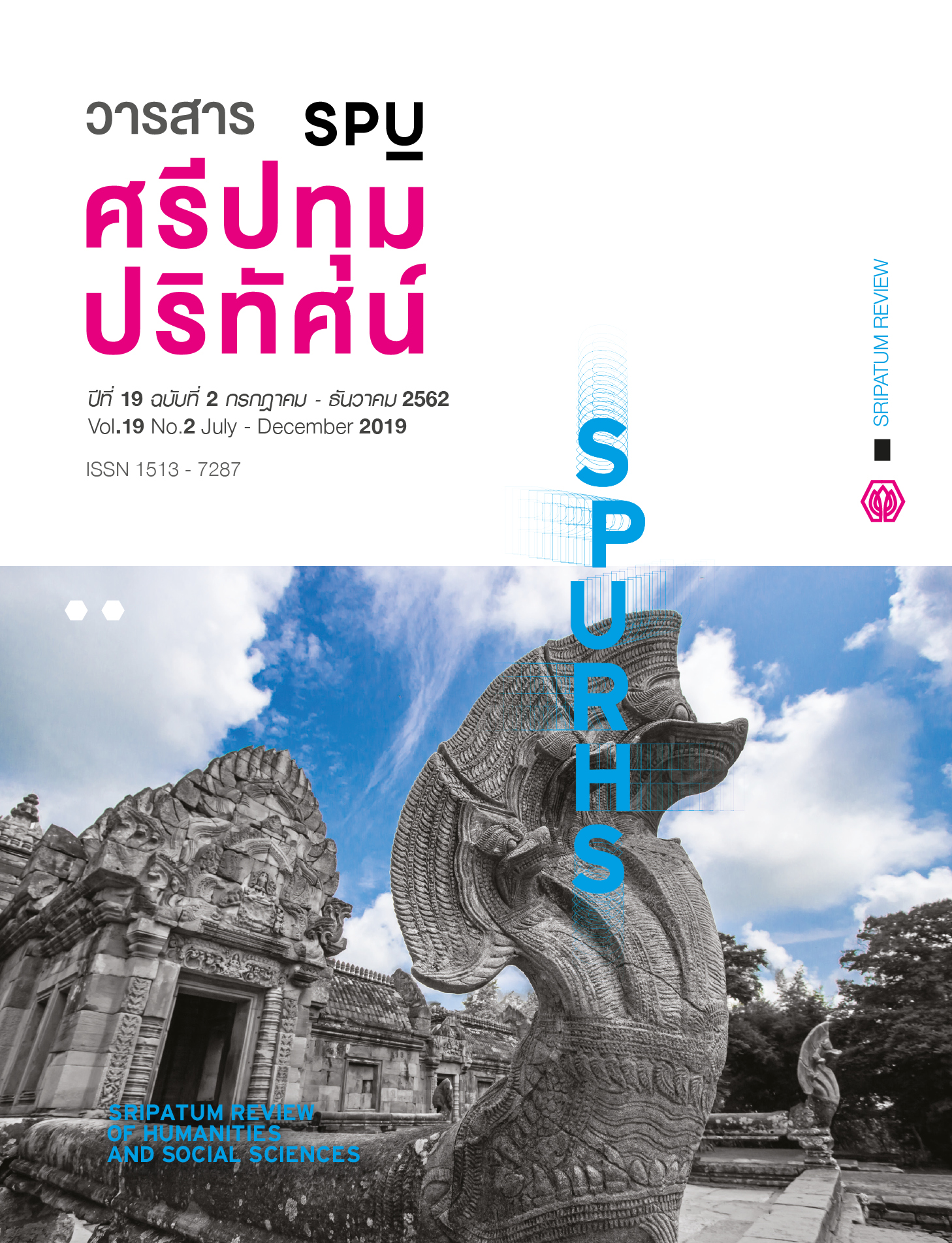สิทธิการให้นมแม่ในสถานประกอบการ : ประเด็นใหม่ในด้านกฎหมาย (Breastfeeding rights in the workplace: A new legal issue)
Main Article Content
Abstract
Recognized by various countries, breast milk is a nutritious food and the most beneficial for child physical and intellectual development as well as strengthening immunity. Therefore, World Health Organization (WHO) and United Nations International Children's Emergency Fund (UNICEF) launched the campaign to support breastfeeding which has resulted in the laws of various countries having established and protected the rights to breastfeeding as a major issue, which is to determine the appropriate maternity leave with pay. Regarding this matter, Thailand foresees the importance of this issue and endeavors to extend duration of maternity leave and allow the employees to receive the wage by amending the current laws, which are the Labor Protection Act, B.E. 2541 and the Social Security Act, B.E. 2533. However, apart from the above issues, that of the breastfeeding rights in the workplace is another issue that many countries pay attention to. By having the provisions of law requiring that each organization facility must prepare a place for breastfeeding or breast pump during working hours which is not the bathroom or the nursing room. However, Thailand still lacks this awareness. Therefore, In order to promote breastfeeding for better child development and also for benefitting employers and employees including the nation as a whole, Thailand deserves to recognize the breastfeeding rights in the workplace materially.
Article Details
1. กองบรรณาธิการสงวนสิทธิ์ในการพิจารณาและตัดสินการตีพิมพ์บทความในวารสาร
2. บทความทุกเรื่องจะได้รับการตรวจสอบทางวิชาการโดยผู้ทรงคุณวุฒิ แต่ข้อความและเนื้อหาในบทความที่ตีพิมพ์เป็นความรับผิดชอบของผู้เขียนแต่เพียงผู้เดียว มิใช่ความคิดเห็นและความรับผิดชอบของมหาวิทยาลัยศรีปทุม
3. การคัดลอกอ้างอิงต้องดำเนินการตามการปฏิบัติในหมู่นักวิชาการโดยทั่วไป และสอดคล้องกับกฎหมายที่เกี่ยวข้อง
References
Cesar, G. Bernardo, L H. Christian, L. Luciana, Q. Ricardo, T P, Denise, P G. et al. (2015). Association between breastfeeding and intelligence, educational attainment, and income at 30 years of age: a prospective birth cohort study from Brazil. Lancet Global Health Journal, (3), 199-205.
Cetthkrikul, N., Topothai, C., Topothai, T. and et al. (2015). Feasibility of the Extension of Paid Maternity Leave from 90 Days to 180 Days in Thailand. Journal of Health Science, Thailand, 24 (4), 1. (in Thai)
Deoni, Sean C.L. (2013). Breastfeeding and early white matter development: A cross-sectional study. NeuroImage, (82), 77-86.
Global Health Data Exchange. (2012). Thailand Multiple Indicator Cluster Survey:MICS, 2012. United Nations Children’s Fund. [Online]. Retrieved September 19, 2018, from: https://ghdx.healthdata.org/record/thailand-multiple-indicator-cluster-survey-2012
Healthpoint. (2016). Brest feeding – recommendation for new mom. [Online]. Retrieved September 11, 2018, from: https://www.healthpoint.co.nz/download,627212.d (in Thai)
Heymann, J., Raub, A. and Earle, A. (2013). Breastfeeding policy: a globally comparative analysis. [Online] Retrieved May 20, 2013, from: https://www.who.int/bulletin/volumes/91/6/12-109363/en/.
Keenaphan, N. (2018). Breast milk is the best!. [Online]. Retrieved September 12, 2018, from:https://www.breastfeedingthai.com/index.php?lay=show&ac=article&Id=538979264&Ntype=6. (in Thai)
Landau, E. (2015) Breastfeeding rooms hidden in health care law. [Online]. Retrieved September 17, 2018, from: https://www.cnn.com/2010/HEALTH/04/09/breast.feeding.society/index.html?hpt=C2.
Lytton, D. Timothy. Dennison, A. Barbara. Nguyen, Q. Trang. and Jurkowski, M. Janine. (2014). There is More to Transparency than Meets the Eye: The Impact of Mandatory Disclosure Laws Aimed at Promoting Breastfeeding. American Journal of Law and Medicine, (40) 393 – 415.
Manes, Y. (2016). What Are Breastfeeding Laws In Other Countries? A Breakdown of Nursing Around The World. [Online]. Retrieved September 1, 2018, from: https://www.romper.com/p/what-are-breastfeeding-laws-in-other-countries-a-breakdown-of-nursing-around-the-world-19434.
Memorandum of Act on controlled the promotion of food marketing for infants and young children B.E. 2560. [Online]. Retrieved June 3, 2019, from: https://www.parliament.go.th/ewtadmin/ewt/elaw_parcy/ewt_dl_link.php?nid=2116&filename=government. (in Thai)
Nuanjam, P. et al. (2013). Factors affected to behavior and during time for breastfeeding of Pasi Charoen persons. Bangkok: Thai Health Promotion Foundation. (in Thai)
Quick Fact of Childcare. (2018) [Online]. Retrieved September 19, 2018, from: https://sweden.se/quickfact/parental-leave/
Srivanit, P. (2007). Mother's rights to work with breastfeeding. Bangkok: Thai Breastfeeding Center Printing. (in Thai)
Thairath Online. (2015). Mother need to know! Powdered milk vs breast milk, the difference as the sky and abyss. [Online]. Retrieved September 12, 2018, from: https://www.thairath.co.th/content/504019. (in Thai)
Tosompak, R. (2015). Developing legislation to promote breastfeeding: The Reform of the Health System. [Online]. Retrieved September 14, 2018,from:https://www.parliament.go.th/ewtadmin/ewt/parliament_parcy/download/article/article_20150917111642.pdf (in Thai)
Unicef. (2018). How good is breast milk. [Online]. Retrieved September 12, 2018, from: https://www.unicef.or.th/breastfeeding/workplace/for-mom/articles/pros-of-breastfeeding. (in Thai)
WHO. (2013). Lactation in the workplace - Are we doing enough?. [Online]. Retrieved September 11, 2018, from: https://www.searo.who.int/thailand/news/wbw2013th/en/. (in Thai)


